Ballad of William White
There was a young Australian boy, his name was William White.
(continuer)
(continuer)
envoyé par Bernart Bartleby 16/2/2016 - 15:54
The Ballad of Bill White
[1968]
Parole e musica di Glen Tomasetti (1929-2003)
Il lato A di un 45” di questa oggi misconosciuta cantautrice australiana che negli anni 60 fu - prima ancora di Eric Bogle - la voce più importante contro il coinvolgimento dell’Australia nella guerra in Vietnam.
Testo trascritto da Raymond Crooke e contribuito – insieme alla cover - sul suo bel sito Raymond’s Folk Song Page. Anche l’introduzione che segue è di Raymond Crooke, cui il disco della Tomasetti fu regalato da uno zio quando era ragazzo.
Finora era stato possibile reperire in Rete solo il testo del brano sul lato B, The Army’s Appeal to Mothers
This song was released on an EP during the Vietnam war. The B side featured two songs, the better of which is the hard-hitting "The Army’s Appeal to Mothers", which was published in Barbara Dane's and Irwin Silber's "The Vietnam Songbook" (1969). However, this song, about a teacher... (continuer)
Parole e musica di Glen Tomasetti (1929-2003)
Il lato A di un 45” di questa oggi misconosciuta cantautrice australiana che negli anni 60 fu - prima ancora di Eric Bogle - la voce più importante contro il coinvolgimento dell’Australia nella guerra in Vietnam.
Testo trascritto da Raymond Crooke e contribuito – insieme alla cover - sul suo bel sito Raymond’s Folk Song Page. Anche l’introduzione che segue è di Raymond Crooke, cui il disco della Tomasetti fu regalato da uno zio quando era ragazzo.
Finora era stato possibile reperire in Rete solo il testo del brano sul lato B, The Army’s Appeal to Mothers
This song was released on an EP during the Vietnam war. The B side featured two songs, the better of which is the hard-hitting "The Army’s Appeal to Mothers", which was published in Barbara Dane's and Irwin Silber's "The Vietnam Songbook" (1969). However, this song, about a teacher... (continuer)
In New South Wales there lives a man, a teacher young and true,
(continuer)
(continuer)
envoyé par Bernart Bartleby 16/2/2016 - 15:05
The Conscription Ramp

[1966]
Parole di Gary Shearston
La melodia è un adattamento della popolare inglese “The Derby Ram”
Nell’album intitolato “Gary Shearston Sings His Songs”
Testo trovato su YouTube come trascritto dal contributore, Artemis Fowl.
Canzone contro la coscrizione miliare voluta dal governo Australiano per sostenere la guerra americana in Vietnam.
Spesso infatti ci si dimentica che alcuni paesi mandarono in Indocina contingenti di soldati a sostegno degli USA. L’Australia, con 7.000 uomini, fu seconda soltanto alla Corea del Sud (48.000)…
“Perhaps this song, written a week after the announcement of conscription, anticipated the political and moral debates that were to come throughout Australia in following months. The tune is adapted from one of the fairly numerous Australian versions of an English folk song, The Derby Ram.”
(dalle note di copertina riportate sul sito dell’autore)
Parole di Gary Shearston
La melodia è un adattamento della popolare inglese “The Derby Ram”
Nell’album intitolato “Gary Shearston Sings His Songs”
Testo trovato su YouTube come trascritto dal contributore, Artemis Fowl.
Canzone contro la coscrizione miliare voluta dal governo Australiano per sostenere la guerra americana in Vietnam.
Spesso infatti ci si dimentica che alcuni paesi mandarono in Indocina contingenti di soldati a sostegno degli USA. L’Australia, con 7.000 uomini, fu seconda soltanto alla Corea del Sud (48.000)…
“Perhaps this song, written a week after the announcement of conscription, anticipated the political and moral debates that were to come throughout Australia in following months. The tune is adapted from one of the fairly numerous Australian versions of an English folk song, The Derby Ram.”
(dalle note di copertina riportate sul sito dell’autore)
As I was walking down the street while on my twentieth birthday-oh!
(continuer)
(continuer)
envoyé par Bernart Bartleby 16/2/2016 - 14:10
ما عاد بدو

Ma Aad Beddo
[2014]
Scritta da Anas Maghrebi / أنس مغربي
Nell’album d’esordio eponimo di questa formazione di giovani siriani, tutti esuli dal loro paese in guerra.
Testo presente sul sito ufficiale del gruppo ma ripreso da Soundcloud
Nel 2011, all’inizio delle proteste di piazza contro il regime di Assad, Anas Maghrebi aveva già creato una sua band, gli “Ana” (“Io”). Il batterista, Rabia al-Ghazzi, uno che credeva molto nella “primavera” e che aveva partecipato attivamente a molte manifestazioni, un giorno fu seguito da alcuni uomini ed ucciso a sangue freddo, un’esecuzione. Il chitarrista fu chiamato sotto le armi e Anas fu costretto a chiudere col suo progetto, e smise anche di studiare e di lavorare. La Siria stessa, travolta dalla guerra, smise di poter fare qualsiasi cosa se non cercare di sopravvivere, o morire, o uccidere. Anas Maghrebi vide la morte in faccia in un paio... (continuer)
[2014]
Scritta da Anas Maghrebi / أنس مغربي
Nell’album d’esordio eponimo di questa formazione di giovani siriani, tutti esuli dal loro paese in guerra.
Testo presente sul sito ufficiale del gruppo ma ripreso da Soundcloud
Nel 2011, all’inizio delle proteste di piazza contro il regime di Assad, Anas Maghrebi aveva già creato una sua band, gli “Ana” (“Io”). Il batterista, Rabia al-Ghazzi, uno che credeva molto nella “primavera” e che aveva partecipato attivamente a molte manifestazioni, un giorno fu seguito da alcuni uomini ed ucciso a sangue freddo, un’esecuzione. Il chitarrista fu chiamato sotto le armi e Anas fu costretto a chiudere col suo progetto, e smise anche di studiare e di lavorare. La Siria stessa, travolta dalla guerra, smise di poter fare qualsiasi cosa se non cercare di sopravvivere, o morire, o uccidere. Anas Maghrebi vide la morte in faccia in un paio... (continuer)
ما عاد بدو .. هوية
(continuer)
(continuer)
envoyé par Bernart Bartleby 16/2/2016 - 09:41
Parcours:
Exil et exiliés
عايش

Aayesh
[2012]
Scritta da Anas Maghrebi / أنس مغربي
Nell’album d’esordio eponimo di questa formazione di giovani siriani, tutti esuli dal loro paese in guerra.
Testi presenti sul sito ufficiale del gruppo ma ripresi da YouTube e Soundcloud
Nel 2011, all’inizio delle proteste di piazza contro il regime di Assad, Anas Maghrebi aveva già creato una sua band, gli “Ana” (“Io”). Il batterista, Rabia al-Ghazzi, uno che credeva molto nella “primavera” e che aveva partecipato attivamente a molte manifestazioni, un giorno fu seguito da alcuni uomini ed ucciso a sangue freddo, un’esecuzione. Il chitarrista fu chiamato sotto le armi e Anas fu costretto a chiudere col suo progetto, e smise anche di studiare e di lavorare. La Siria stessa, travolta dalla guerra, smise di poter fare qualsiasi cosa se non cercare di sopravvivere, o morire, o uccidere. Anas Maghrebi vide la morte in faccia in un... (continuer)
[2012]
Scritta da Anas Maghrebi / أنس مغربي
Nell’album d’esordio eponimo di questa formazione di giovani siriani, tutti esuli dal loro paese in guerra.
Testi presenti sul sito ufficiale del gruppo ma ripresi da YouTube e Soundcloud
Nel 2011, all’inizio delle proteste di piazza contro il regime di Assad, Anas Maghrebi aveva già creato una sua band, gli “Ana” (“Io”). Il batterista, Rabia al-Ghazzi, uno che credeva molto nella “primavera” e che aveva partecipato attivamente a molte manifestazioni, un giorno fu seguito da alcuni uomini ed ucciso a sangue freddo, un’esecuzione. Il chitarrista fu chiamato sotto le armi e Anas fu costretto a chiudere col suo progetto, e smise anche di studiare e di lavorare. La Siria stessa, travolta dalla guerra, smise di poter fare qualsiasi cosa se non cercare di sopravvivere, o morire, o uccidere. Anas Maghrebi vide la morte in faccia in un... (continuer)
لسّاتك عايش و عم تشرب ميّ
(continuer)
(continuer)
envoyé par Bernart Bartleby 16/2/2016 - 09:05
Parcours:
Exil et exiliés
Al ballo mascherato

[1973]
Testo di Fabrizio de André e Giuseppe Bentivoglio
Lyrics by Fabrizio De André and Giuseppe Bentivoglio
Musica di Fabrizio de André e Nicola Piovani
Music by Fabrizio De André and Nicola Piovani
Album: "Storia di un impiegato"
Mercy leans against her favorite bombardment
and forgives the bomb
Gregory Corso, Vision of Rotterdam
"Storia di un impiegato" è un album fatto, in gran parte, di sogni. Quelli del famoso impiegato trentenne, quando avere trent'anni significava già avere una giovane maturità, un impiego, magari pure una famiglia; ne abbiamo già visti due, il Sogno numero due e la Canzone del padre. Curiosamente abbastanza, però, mancava il primo: Al ballo mascherato. La vicenda dell'impiegato e del suo gesto di ribellione individuale è schematicamente lineare fin dal primo contatto con il canto dei "cuccioli del maggio"; una ribellione ad un cammino... (continuer)
Testo di Fabrizio de André e Giuseppe Bentivoglio
Lyrics by Fabrizio De André and Giuseppe Bentivoglio
Musica di Fabrizio de André e Nicola Piovani
Music by Fabrizio De André and Nicola Piovani
Album: "Storia di un impiegato"
Mercy leans against her favorite bombardment
and forgives the bomb
Gregory Corso, Vision of Rotterdam
"Storia di un impiegato" è un album fatto, in gran parte, di sogni. Quelli del famoso impiegato trentenne, quando avere trent'anni significava già avere una giovane maturità, un impiego, magari pure una famiglia; ne abbiamo già visti due, il Sogno numero due e la Canzone del padre. Curiosamente abbastanza, però, mancava il primo: Al ballo mascherato. La vicenda dell'impiegato e del suo gesto di ribellione individuale è schematicamente lineare fin dal primo contatto con il canto dei "cuccioli del maggio"; una ribellione ad un cammino... (continuer)
Cristo drogato da troppe sconfitte
(continuer)
(continuer)
envoyé par Gaspard De La Nuit 16/2/2016 - 04:17
بتعمّر

[2012]
Scritta da Anas Maghrebi / أنس مغربي
Nell’album d’esordio eponimo di questa formazione di giovani siriani, tutti esuli dal loro paese in guerra.
Testi presenti sul sito ufficiale del gruppo ma ripresi da YouTube e Soundcloud
Nel 2011, all’inizio delle proteste di piazza contro il regime di Assad, Anas Maghrebi aveva già creato una sua band, gli “Ana” (“Io”). Il batterista, Rabia al-Ghazzi, uno che credeva molto nella “primavera” e che aveva partecipato attivamente a molte manifestazioni, un giorno fu seguito da alcuni uomini ed ucciso a sangue freddo, un’esecuzione. Il chitarrista fu chiamato sotto le armi e Anas fu costretto a chiudere col suo progetto, e smise anche di studiare e di lavorare. La Siria stessa, travolta dalla guerra, smise di poter fare qualsiasi cosa se non cercare di sopravvivere, o morire, o uccidere. Anas Maghrebi vide la morte in faccia in un paio di occasioni... (continuer)
Scritta da Anas Maghrebi / أنس مغربي
Nell’album d’esordio eponimo di questa formazione di giovani siriani, tutti esuli dal loro paese in guerra.
Testi presenti sul sito ufficiale del gruppo ma ripresi da YouTube e Soundcloud
Nel 2011, all’inizio delle proteste di piazza contro il regime di Assad, Anas Maghrebi aveva già creato una sua band, gli “Ana” (“Io”). Il batterista, Rabia al-Ghazzi, uno che credeva molto nella “primavera” e che aveva partecipato attivamente a molte manifestazioni, un giorno fu seguito da alcuni uomini ed ucciso a sangue freddo, un’esecuzione. Il chitarrista fu chiamato sotto le armi e Anas fu costretto a chiudere col suo progetto, e smise anche di studiare e di lavorare. La Siria stessa, travolta dalla guerra, smise di poter fare qualsiasi cosa se non cercare di sopravvivere, o morire, o uccidere. Anas Maghrebi vide la morte in faccia in un paio di occasioni... (continuer)
قتلوني و لاموني لإني حكيت
(continuer)
(continuer)
envoyé par Bernart Bartleby 15/2/2016 - 21:45
Parcours:
Exil et exiliés
В землянке
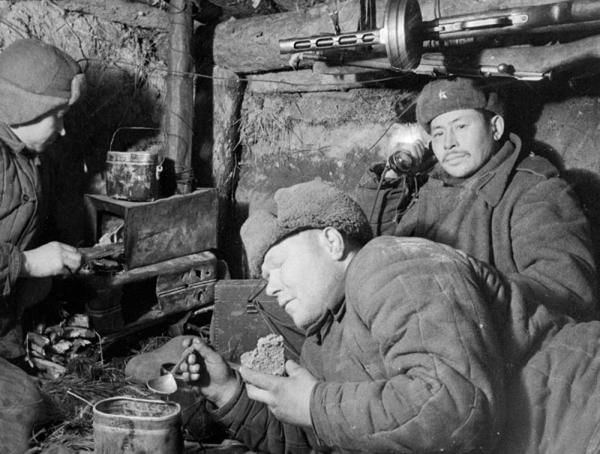
V zemljanke
[1941]
Versi di Aleksej Aleksandrovič Surkov (1899-1983), poeta e scrittore russo, uno molto in vista nei decenni staliniani
Musica di Konstantin Listov / Константин Яковлевич Листов (1900-1983), compositore sovietico, nato in Ucraina.
Testo in cirillico e traslitterazione latina (che però lascio a Riccardo, visti i miei precedenti strafalcioni in merito) trovati su Marxists.org
Durante l’offensiva nazista contro l’Unione Sovietica Alexey Surkov era corrispondente di guerra ed ebbe a trovarsi nel bel mezzo della battaglia di Mosca (2 ottobre 1941 – 7 gennaio 1942). E qui, sprofondato in una zemlianka, un rifugio sotterraneo tipico di alcuni paesi dell’Est Europa, usato sia in tempo di pace che in guerra, compose questa poesia di resistenza e d’amore.
In seguito Surkov divenne uno degli intellettuali della nomenklatura staliniana, ma questa è un’altra storia.
Messa in... (continuer)
[1941]
Versi di Aleksej Aleksandrovič Surkov (1899-1983), poeta e scrittore russo, uno molto in vista nei decenni staliniani
Musica di Konstantin Listov / Константин Яковлевич Листов (1900-1983), compositore sovietico, nato in Ucraina.
Testo in cirillico e traslitterazione latina (che però lascio a Riccardo, visti i miei precedenti strafalcioni in merito) trovati su Marxists.org
Durante l’offensiva nazista contro l’Unione Sovietica Alexey Surkov era corrispondente di guerra ed ebbe a trovarsi nel bel mezzo della battaglia di Mosca (2 ottobre 1941 – 7 gennaio 1942). E qui, sprofondato in una zemlianka, un rifugio sotterraneo tipico di alcuni paesi dell’Est Europa, usato sia in tempo di pace che in guerra, compose questa poesia di resistenza e d’amore.
In seguito Surkov divenne uno degli intellettuali della nomenklatura staliniana, ma questa è un’altra storia.
Messa in... (continuer)
Бьется в тесной печурке огонь,
(continuer)
(continuer)
envoyé par Bernart Bartleby 15/2/2016 - 14:57
Parcours:
Chansons d'amour contre la guerre
Taita Atahualpa
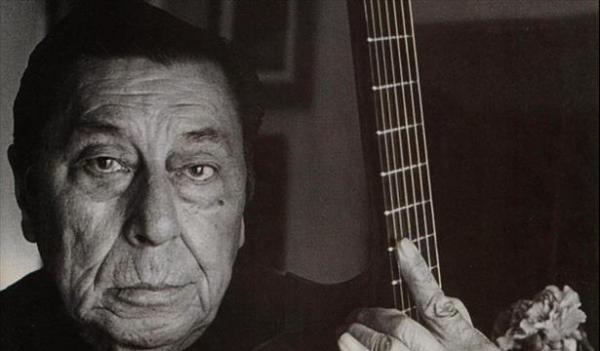
[1987?]
Parole e musica di Ángel Parra
Nel disco dal vivo “Ángel Parra en Alemania” pubblicato nel 1988.
Una canzone, precisamente un “huayno” dedicato al grande Atahualpa Yupanqui che nel 1992 Parra ebbe la fortuna di cantare proprio davanti al suo maestro, nel corso di un concerto congiunto a Zurigo. Era l’8 febbraio del 1992 e il payador argentino si sarebbe spento poche settimane dopo, il 23 maggio.
Quello con Parra fu “El último recital” di Atahualpa Yupanqui.
Parole e musica di Ángel Parra
Nel disco dal vivo “Ángel Parra en Alemania” pubblicato nel 1988.
Una canzone, precisamente un “huayno” dedicato al grande Atahualpa Yupanqui che nel 1992 Parra ebbe la fortuna di cantare proprio davanti al suo maestro, nel corso di un concerto congiunto a Zurigo. Era l’8 febbraio del 1992 e il payador argentino si sarebbe spento poche settimane dopo, il 23 maggio.
Quello con Parra fu “El último recital” di Atahualpa Yupanqui.
Taita Atahualpa me lo enseñó:
(continuer)
(continuer)
envoyé par Bernart Bartleby 14/2/2016 - 22:12
Fly Over
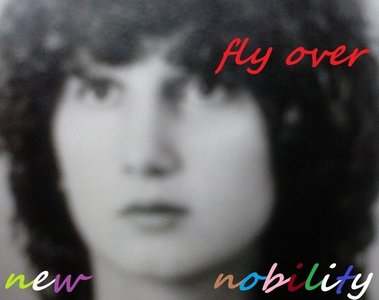
imagine a time, where there's no war and enter a place near the heart
(continuer)
(continuer)
envoyé par Zoran Krga 14/2/2016 - 09:07
Luca Marenzio: Solo e pensoso i più deserti campi

[1581]
Di Luca Marenzio il Nono Libro de Madrigali a cinque voci
Nouamente composto & dato in luce. In Venetia,
Appresso Angelo Gardano. 1599.
Sonetto XXXV dal Canzoniere di Francesco Petrarca [prima del 1337]
Il fatto che oggi sia domenica quattordici febbraio, e che in mezzo mondo oggi sia il giorno deputato all’amore ha, evidentemente, assai poco a che vedere con questa mia consueta inattualità. Si tratta, come tutti sapranno, di uno dei sonetti più celebri del Canzoniere petrarchesco, composto prima del 1337, in cui Petrarca descrive se stesso intento a camminare in luoghi remoti e selvaggi, nel tentativo (vano) di evitare i suoi pensieri amorosi e, soprattutto, per non mostrare agli altri il suo aspetto afflitto che rivela le sue pene sentimentali. Il sentimento interiore, si dice nelle storie della letteratura, è oggettivato attraverso il paesaggio esterno, poiché la... (continuer)
Di Luca Marenzio il Nono Libro de Madrigali a cinque voci
Nouamente composto & dato in luce. In Venetia,
Appresso Angelo Gardano. 1599.
Sonetto XXXV dal Canzoniere di Francesco Petrarca [prima del 1337]
Il fatto che oggi sia domenica quattordici febbraio, e che in mezzo mondo oggi sia il giorno deputato all’amore ha, evidentemente, assai poco a che vedere con questa mia consueta inattualità. Si tratta, come tutti sapranno, di uno dei sonetti più celebri del Canzoniere petrarchesco, composto prima del 1337, in cui Petrarca descrive se stesso intento a camminare in luoghi remoti e selvaggi, nel tentativo (vano) di evitare i suoi pensieri amorosi e, soprattutto, per non mostrare agli altri il suo aspetto afflitto che rivela le sue pene sentimentali. Il sentimento interiore, si dice nelle storie della letteratura, è oggettivato attraverso il paesaggio esterno, poiché la... (continuer)
Solo et pensoso [1] i più deserti campi
(continuer)
(continuer)
envoyé par Riccardo Venturi 14/2/2016 - 08:05
I'm Afraid of Americans

[1997]
Written by David Bowie and Brian Eno
Scritta da David Bowie e Brian Eno
Featuring: Nine Inch Nails
Single / Singolo [14.X.1997]
Album: Earthling
I'm Afraid of Americans è un singolo di David Bowie estratto dall'album Earthling nel 1997. La canzone, scritta da Bowie e da Brian Eno, fu originariamente realizzata durante le sessioni in studio di Bowie per l'album del 1995 1.Outside, ma non fu pubblicata fino al rough mix apparso nella colonna sonora del film Showgirls. Il brano fu infine edito nuovamente per l'inclusione in Earthling.
Bowie spiegò in questo modo il significato del brano, il cui titolo tradotto in italiano significa letteralmente "Ho paura degli americani":
« It's not as truly hostile about Americans as say Born in the U.S.A.: it's merely sardonic. I was traveling in Java when [its] first McDonald's went up: it was like, "for fuck's sake." The invasion by any... (continuer)
Written by David Bowie and Brian Eno
Scritta da David Bowie e Brian Eno
Featuring: Nine Inch Nails
Single / Singolo [14.X.1997]
Album: Earthling
I'm Afraid of Americans è un singolo di David Bowie estratto dall'album Earthling nel 1997. La canzone, scritta da Bowie e da Brian Eno, fu originariamente realizzata durante le sessioni in studio di Bowie per l'album del 1995 1.Outside, ma non fu pubblicata fino al rough mix apparso nella colonna sonora del film Showgirls. Il brano fu infine edito nuovamente per l'inclusione in Earthling.
Bowie spiegò in questo modo il significato del brano, il cui titolo tradotto in italiano significa letteralmente "Ho paura degli americani":
« It's not as truly hostile about Americans as say Born in the U.S.A.: it's merely sardonic. I was traveling in Java when [its] first McDonald's went up: it was like, "for fuck's sake." The invasion by any... (continuer)
Uh-uh-uh uh, uh, uh-uh uh-uh-uh
(continuer)
(continuer)
envoyé par Riccardo Venturi 13/2/2016 - 23:17
Vengeance et Mort – Till et Nelle (4)
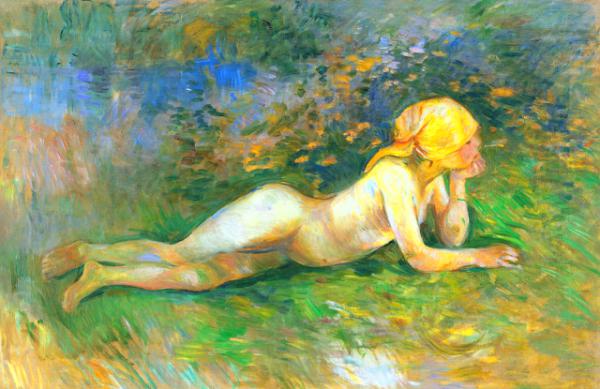
Vengeance et Mort – Till et Nelle (4)
Chanson française – Le Printemps – Till et Nelle (2) – Marco Valdo M.I. – 2016
Ulenspiegel le Gueux – 29
Opéra-récit en multiples épisodes, tiré du roman de Charles De Coster : La Légende et les aventures héroïques, joyeuses et glorieuses d’Ulenspiegel et de Lamme Goedzak au Pays de Flandres et ailleurs (1867).
(Ulenspiegel – I, LXXXV)
Cette numérotation particulière : (Ulenspiegel – I, I), signifie très exactement ceci :
Ulenspiegel : La Légende et les aventures héroïques, joyeuses et glorieuses d’Ulenspiegel et de Lamme Goedzak au Pays de Flandres et ailleurs, dans le texte de l’édition de 1867.
Le premier chiffre romain correspond au numéro du Livre – le roman comporte 5 livres et le deuxième chiffre romain renvoie au chapitre d’où a été tirée la chanson. Ainsi, on peut – si le cœur vous en dit – retrouver le texte originel et plein de détails... (continuer)
Chanson française – Le Printemps – Till et Nelle (2) – Marco Valdo M.I. – 2016
Ulenspiegel le Gueux – 29
Opéra-récit en multiples épisodes, tiré du roman de Charles De Coster : La Légende et les aventures héroïques, joyeuses et glorieuses d’Ulenspiegel et de Lamme Goedzak au Pays de Flandres et ailleurs (1867).
(Ulenspiegel – I, LXXXV)
Cette numérotation particulière : (Ulenspiegel – I, I), signifie très exactement ceci :
Ulenspiegel : La Légende et les aventures héroïques, joyeuses et glorieuses d’Ulenspiegel et de Lamme Goedzak au Pays de Flandres et ailleurs, dans le texte de l’édition de 1867.
Le premier chiffre romain correspond au numéro du Livre – le roman comporte 5 livres et le deuxième chiffre romain renvoie au chapitre d’où a été tirée la chanson. Ainsi, on peut – si le cœur vous en dit – retrouver le texte originel et plein de détails... (continuer)
Altesses divines, les cendres battent sur mon cœur.
(continuer)
(continuer)
envoyé par Marco Valdo M.I. 13/2/2016 - 18:38
Papaoutai

(2013)
Album Racine carrée
Nel video viene mostrato un bambino che cerca di interagire con il padre (interpretato da Stromae) che siede su una poltrona con un'espressione che ricorda quella di un manichino mentre gli altri bambini danzano insieme ai propri padri. Nel finale il bambino si siede a fianco del padre assumendo la stessa rigida posizione. Il video ha ricevuto oltre 300 milioni di visualizzazioni ed è anche il video in lingua francese più visto di sempre su YouTube.
Il controverso significato del video rimase nascosto fino a quando Stromae in un'intervista dichiara che il video è una sorta di interpretazione della sua infanzia vissuta in mancanza del padre ucciso nel genocidio del Ruanda.
wikipedia
Album Racine carrée
Nel video viene mostrato un bambino che cerca di interagire con il padre (interpretato da Stromae) che siede su una poltrona con un'espressione che ricorda quella di un manichino mentre gli altri bambini danzano insieme ai propri padri. Nel finale il bambino si siede a fianco del padre assumendo la stessa rigida posizione. Il video ha ricevuto oltre 300 milioni di visualizzazioni ed è anche il video in lingua francese più visto di sempre su YouTube.
Il controverso significato del video rimase nascosto fino a quando Stromae in un'intervista dichiara che il video è una sorta di interpretazione della sua infanzia vissuta in mancanza del padre ucciso nel genocidio del Ruanda.
wikipedia
Dites-moi d'où il vient
(continuer)
(continuer)
12/2/2016 - 23:52
Parcours:
1994: Génocide au Rwanda
Le Printemps – Till et Nelle (3)
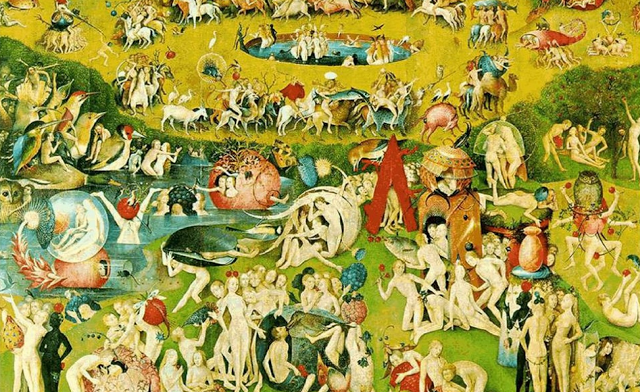
Le Printemps – Till et Nelle (3)
Chanson française – Le Printemps – Till et Nelle (2) – Marco Valdo M.I. – 2016
Ulenspiegel le Gueux – 28
Opéra-récit en multiples épisodes, tiré du roman de Charles De Coster : La Légende et les aventures héroïques, joyeuses et glorieuses d’Ulenspiegel et de Lamme Goedzak au Pays de Flandres et ailleurs (1867).
(Ulenspiegel – I, LXXXV)
Cette numérotation particulière : (Ulenspiegel – I, I), signifie très exactement ceci :
Ulenspiegel : La Légende et les aventures héroïques, joyeuses et glorieuses d’Ulenspiegel et de Lamme Goedzak au Pays de Flandres et ailleurs, dans le texte de l’édition de 1867.
Le premier chiffre romain correspond au numéro du Livre – le roman comporte 5 livres et le deuxième chiffre romain renvoie au chapitre d’où a été tirée la chanson. Ainsi, on peut – si le cœur vous en dit – retrouver le texte originel et plein de détails... (continuer)
Chanson française – Le Printemps – Till et Nelle (2) – Marco Valdo M.I. – 2016
Ulenspiegel le Gueux – 28
Opéra-récit en multiples épisodes, tiré du roman de Charles De Coster : La Légende et les aventures héroïques, joyeuses et glorieuses d’Ulenspiegel et de Lamme Goedzak au Pays de Flandres et ailleurs (1867).
(Ulenspiegel – I, LXXXV)
Cette numérotation particulière : (Ulenspiegel – I, I), signifie très exactement ceci :
Ulenspiegel : La Légende et les aventures héroïques, joyeuses et glorieuses d’Ulenspiegel et de Lamme Goedzak au Pays de Flandres et ailleurs, dans le texte de l’édition de 1867.
Le premier chiffre romain correspond au numéro du Livre – le roman comporte 5 livres et le deuxième chiffre romain renvoie au chapitre d’où a été tirée la chanson. Ainsi, on peut – si le cœur vous en dit – retrouver le texte originel et plein de détails... (continuer)
Les esprits de la terre
(continuer)
(continuer)
envoyé par Marco Valdo M.I. 12/2/2016 - 19:39
The Factory Slave
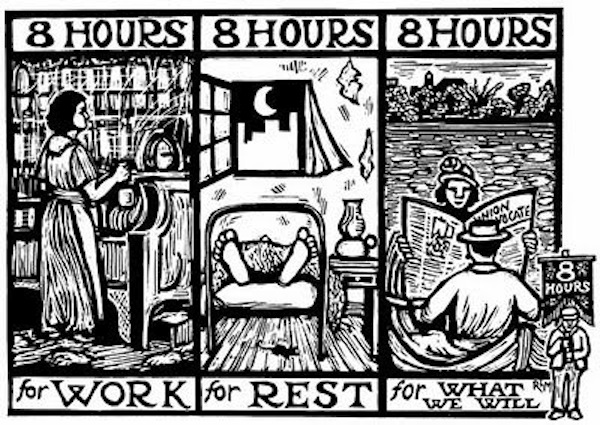
[1880s]
Parole di Thomas Phillips Thompson (1843-1933), inglese di nascita ma trapiantato in Canada, giornalista, militante del Knights of Labor e poi del Partito socialista. Autore del volumetto di canzoni “The labor reform songster” pubblicato nel 1892 sul “Journal of the Knights of Labor”
Sulla melodia della popolare “Way Down upon the Swanee River”
Parole di Thomas Phillips Thompson (1843-1933), inglese di nascita ma trapiantato in Canada, giornalista, militante del Knights of Labor e poi del Partito socialista. Autore del volumetto di canzoni “The labor reform songster” pubblicato nel 1892 sul “Journal of the Knights of Labor”
Sulla melodia della popolare “Way Down upon the Swanee River”
Toiling amid the smoke and clamor
(continuer)
(continuer)
envoyé par Bernart Bartleby 12/2/2016 - 10:43
La conduite
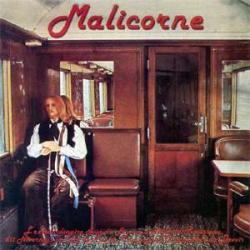
Traditionnel / Tradizionale
Arrangement / Arrangiamento:
Gabriel Yacoub / Malicorne
Album: L'extraordinaire tour de France
d'Adélard Rousseau, dit
Nivernais La Clef des Cœurs,
Compagnon charpentier du Devoir [1978]
Come (quasi) sempre per le canzoni popolari “ristrutturate” dai Malicorne, è praticamente inutile cercare negli album dei riferimenti storici precisi. Non erano del resto, e non sono mai stati, dei “folkloristi” nel senso autentico del termine, bensì dei musicisti che intendevano reimpiantare un discorso musicale assai moderno su una tradizione molto antica e ricca. Per andare a saperne qualcosa di più e di meglio su questa canzone, probabilmente sei-settecentesca, siamo quindi dovuti ricorrere a un “forgotten book”, vale a dire l’Histoire de la chanson populaire en France di Julien Tiersot, pubblicato nel 1889 e ripubblicato nel 2013 a Londra da una casa editrice di testi... (continuer)
Arrangement / Arrangiamento:
Gabriel Yacoub / Malicorne
Album: L'extraordinaire tour de France
d'Adélard Rousseau, dit
Nivernais La Clef des Cœurs,
Compagnon charpentier du Devoir [1978]
Come (quasi) sempre per le canzoni popolari “ristrutturate” dai Malicorne, è praticamente inutile cercare negli album dei riferimenti storici precisi. Non erano del resto, e non sono mai stati, dei “folkloristi” nel senso autentico del termine, bensì dei musicisti che intendevano reimpiantare un discorso musicale assai moderno su una tradizione molto antica e ricca. Per andare a saperne qualcosa di più e di meglio su questa canzone, probabilmente sei-settecentesca, siamo quindi dovuti ricorrere a un “forgotten book”, vale a dire l’Histoire de la chanson populaire en France di Julien Tiersot, pubblicato nel 1889 e ripubblicato nel 2013 a Londra da una casa editrice di testi... (continuer)
Partons chers compagnons, le devoir nous l’ordonne
(continuer)
(continuer)
envoyé par DonQuijote82 + CCG/AWS Staff 12/2/2016 - 06:20
Le Roi Printemps – Till et Nelle (2)

Le Roi Printemps – Till et Nelle (2)
Chanson française – Le Roi Printemps – Till et Nelle (2) – Marco Valdo M.I. – 2016
Ulenspiegel le Gueux – 27
Opéra-récit en multiples épisodes, tiré du roman de Charles De Coster : La Légende et les aventures héroïques, joyeuses et glorieuses d’Ulenspiegel et de Lamme Goedzak au Pays de Flandres et ailleurs (1867).
(Ulenspiegel – I, LXXXV)
Cette numérotation particulière : (Ulenspiegel – I, I), signifie très exactement ceci :
Ulenspiegel : La Légende et les aventures héroïques, joyeuses et glorieuses d’Ulenspiegel et de Lamme Goedzak au Pays de Flandres et ailleurs, dans le texte de l’édition de 1867.
Le premier chiffre romain correspond au numéro du Livre – le roman comporte 5 livres et le deuxième chiffre romain renvoie au chapitre d’où a été tirée la chanson. Ainsi, on peut – si le cœur vous en dit – retrouver le texte originel et plein de... (continuer)
Chanson française – Le Roi Printemps – Till et Nelle (2) – Marco Valdo M.I. – 2016
Ulenspiegel le Gueux – 27
Opéra-récit en multiples épisodes, tiré du roman de Charles De Coster : La Légende et les aventures héroïques, joyeuses et glorieuses d’Ulenspiegel et de Lamme Goedzak au Pays de Flandres et ailleurs (1867).
(Ulenspiegel – I, LXXXV)
Cette numérotation particulière : (Ulenspiegel – I, I), signifie très exactement ceci :
Ulenspiegel : La Légende et les aventures héroïques, joyeuses et glorieuses d’Ulenspiegel et de Lamme Goedzak au Pays de Flandres et ailleurs, dans le texte de l’édition de 1867.
Le premier chiffre romain correspond au numéro du Livre – le roman comporte 5 livres et le deuxième chiffre romain renvoie au chapitre d’où a été tirée la chanson. Ainsi, on peut – si le cœur vous en dit – retrouver le texte originel et plein de... (continuer)
Au souffle tiède du roi Printemps
(continuer)
(continuer)
envoyé par Marco Valdo M.I. 11/2/2016 - 21:03
Fabrizio De André: Jamin-a

Dal blog Fabrizio De André in English
In De Andrè's words, "Jamína is not a dream, but rather the hope for respite. A respite in the face of possible gale force conditions at sea, or even a shipwreck. I mean that Jamina is the hypothesis of a positive adventure that, in a corner of the fantasy of a sailor, always finds space and respite. Jamina is the companion in an erotic voyage that every sailor hopes for, or better, expects to encounter in every place, after the dangerous broadsides subjected to by an enemy sea or an imprudent commander." - Dennis Criteser
JAMIN-A
(continuer)
(continuer)
envoyé par Riccardo Venturi 11/2/2016 - 07:57
Canzone del padre

Dal blog Fabrizio De André in English
"Per the album notes, the worker "has understood that he is a finished man with no possibility of recovery, that his acts will always be individualistic, striving for his own personal needs, and that by attaining more power one doesn't escape one's condition of isolation and anxiety. The bomb that was tossed with force, with anger and with a sense of vendetta in the dream, now in reality becomes a moment of exhilaration and, obviously of lucidity." - Dennis Criteser
FATHER'S SONG
(continuer)
(continuer)
envoyé par Riccardo Venturi 11/2/2016 - 06:58
Mourir pour des idées

Dal blog Fabrizio De André in English
"Morire per delle idee" is a translation/adaptation of Georges Brassens's "Mourir pour des idées" which was written in response to strong criticism for another of his songs "Les deux oncles," an anti-war song that was controversial because it treated two French brothers equally - one a British sympathizer and the other a collaborationist.
Canzoni, released in 1974, was a "filler" album, like Volume III, desired by De André's label. The only three previously unreleased songs here are covers of Dylan's "Desolation Row" and of two songs by Georges Brassens. Also included are two covers of Leonard Cohen songs.
Canzoni, released in 1974, was a "filler" album, like Volume III, desired by De André's label. The only three previously unreleased songs here are covers of Dylan's "Desolation Row" and of two songs by Georges Brassens. Also included are two covers of Leonard Cohen songs.
DYING FOR SOME IDEAS
(continuer)
(continuer)
envoyé par Riccardo Venturi 11/2/2016 - 05:52
Mourir pour des idées
Attribuita a NTBAHA [sic] e datata 2/11/2014. Appare come una versione letterale dell'originale francese.
ان نموت من اجل افكار
(continuer)
(continuer)
envoyé par Riccardo Venturi 11/2/2016 - 05:45
Mourir pour des idées
Svensk version av Ola Henricsson och Örjan Hjorth.
Att dö för idéer è la versione in lingua svedese (il titolo è l'esatta resa in svedese di quello originale) interpretata da Ola Henricsson e Örjan Hjorth (ma la traduzione è del solo Ola Henricsson). Li vediamo qui interpretarla in uno spettacolo a bordo della nave S/S Marieholm, ormeggiata a Göteborg, il 6 marzo 2015. Il testo non è purtroppo reperibile in rete; ci occuperemo appena possibile di trascriverlo all'ascolto. [RV]
Att dö för idéer è la versione in lingua svedese (il titolo è l'esatta resa in svedese di quello originale) interpretata da Ola Henricsson e Örjan Hjorth (ma la traduzione è del solo Ola Henricsson). Li vediamo qui interpretarla in uno spettacolo a bordo della nave S/S Marieholm, ormeggiata a Göteborg, il 6 marzo 2015. Il testo non è purtroppo reperibile in rete; ci occuperemo appena possibile di trascriverlo all'ascolto. [RV]
envoyé par Riccardo Venturi 11/2/2016 - 04:50
Mourir pour des idées

Ripresa dai sottotitoli del video YouTube sopra proposto, con trascrizione diretta. La variante del portoghese utilizzato è chiaramente brasiliana.
MORRER POR IDEIAS
(continuer)
(continuer)
envoyé par Riccardo Venturi 10/2/2016 - 20:41
La guerra di Piero
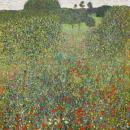
POLACCO / POLISH [2] - Szymon Gruda
Versione polacca cantabile di Szymon Gruda segnalatami da Kaśka Janiak (very cool) [KW]
da questa pagina
Versione polacca cantabile di Szymon Gruda segnalatami da Kaśka Janiak (very cool) [KW]
da questa pagina
PIERO
(continuer)
(continuer)
envoyé par Kaśka Janiak tramite Krzysiek Wrona 10/2/2016 - 19:30
Mourir pour des idées

Dall'album "Suppliche e celebrazioni" (2008).
L'animazione è di Dario Faggella (http://www.faggella.it)
MORIR PER UN'IDEA
(continuer)
(continuer)
envoyé par Riccardo Venturi 10/2/2016 - 18:30
Pe' Stefano
A tutti i poeti manca un verso: ogni tanto anche lo staff di Canzoni Contro la Guerra inciampa su qualche canzone dalla micidiale e irreparabile bruttezza, come questo rap in romanesco imitazione di un originale già esiziale per proprio conto, la cui funesta aura adombra ogni pur lodevole intenzione...
Io non sto con Oriana 10/2/2016 - 16:29
Fabrizio De André: Monti di Mola
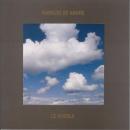
Dal blog Fabrizio De André in English
"Monti di Mola" takes place on the Emerald Coast of Sardinia. De André called the song a metaphor showing the impossibility of reaching one's dreams in a society that has become bureaucratic and standardized, where the imagination of the culture can't expand to accept "impossible dreams" that are on the verge of coming true. The song is in the Gallurese dialect.
It took six years after the tremendous success of Creuza de mä for De André to release his next studio album, Le nuvole (The Clouds). In the meantime, he and Mauro Pagani explored several avenues of musical collaboration which did not come to fruition. De André had this to say about Le nuvole: "I realized that people are just pissed off, and since Le nuvole is a symbol of this dissatisfaction, the transference, the intermediary for this general discontent, I would say that the album was welcomed... (continuer)
"Monti di Mola" takes place on the Emerald Coast of Sardinia. De André called the song a metaphor showing the impossibility of reaching one's dreams in a society that has become bureaucratic and standardized, where the imagination of the culture can't expand to accept "impossible dreams" that are on the verge of coming true. The song is in the Gallurese dialect.
It took six years after the tremendous success of Creuza de mä for De André to release his next studio album, Le nuvole (The Clouds). In the meantime, he and Mauro Pagani explored several avenues of musical collaboration which did not come to fruition. De André had this to say about Le nuvole: "I realized that people are just pissed off, and since Le nuvole is a symbol of this dissatisfaction, the transference, the intermediary for this general discontent, I would say that the album was welcomed... (continuer)
MOUNTAINS OF MOLA
(continuer)
(continuer)
envoyé par Riccardo Venturi 10/2/2016 - 09:55
Sidùn
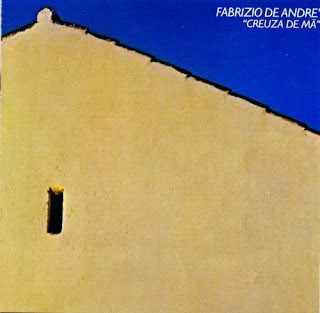
Dal blog Fabrizio De André in English
"Sidon is a coastal city halfway between the southern border of Lebanon and Beirut. At the time this song was written, Lebanon was in the midst of a civil war that began in 1975 and that saw Israel invade and push towards Beirut in 1982. In De André's words, "Sidon is the Lebanese city that gave us, beyond the letters of our alphabet, even the invention of glass. I imagined myself, after the sudden attack of General Sharon in 1982, as a middle-aged Arab man, dirty, desperate, certainly poor, holding in his arms his own son, chewed up by the steel tracks of an armored tank. . . . The 'little death' alluded to at the end of this song should not be confused with the death of a little boy. Rather it is understood metaphorically as the end of a civilization and culture of a small country: Lebanon, Phoenicia, which at its discretion was perhaps the greatest... (continuer)
"Sidon is a coastal city halfway between the southern border of Lebanon and Beirut. At the time this song was written, Lebanon was in the midst of a civil war that began in 1975 and that saw Israel invade and push towards Beirut in 1982. In De André's words, "Sidon is the Lebanese city that gave us, beyond the letters of our alphabet, even the invention of glass. I imagined myself, after the sudden attack of General Sharon in 1982, as a middle-aged Arab man, dirty, desperate, certainly poor, holding in his arms his own son, chewed up by the steel tracks of an armored tank. . . . The 'little death' alluded to at the end of this song should not be confused with the death of a little boy. Rather it is understood metaphorically as the end of a civilization and culture of a small country: Lebanon, Phoenicia, which at its discretion was perhaps the greatest... (continuer)
SIDON
(continuer)
(continuer)
envoyé par Riccardo Venturi 10/2/2016 - 05:58
Nella mia ora di libertà

Dal blog Fabrizio De André in English
"In the final song, the worker realizes that individual protest has little chance of having results against power, and that to change things it's necessary to join with others and to act en masse, as did the students of May 1968 in France." - Dennis Criteser
IN MY HOUR OF FREEDOM
(continuer)
(continuer)
envoyé par Riccardo Venturi 10/2/2016 - 05:23
Ballata degli impiccati

Dal blog Fabrizio De André in English
"La ballata degli impiccati" is closely related to a 1462 poem, "Ballade des pendus" by François Villon, written in prison while waiting for his execution. Whereas Villon asks for pity for the condemned, the lyrics of De Andrè and Bentivoglio express rancor for those who judged, for those who buried, even for those who remembered, all of whom will inevitably also meet their ends.
Tutti morimmo a stento, released in 1968, was one of the first concept albums in Italy. In De Andrè's own words, the album "speaks of death, not of bubble gum death with little bones, but of psychological death, moral death, mental death, that a normal person can encounter during his lifetime." After the success of Volume I, De André was provided for this next album a cutting edge recording studio complete with an 80-member orchestra, directed by Gian Piero Reverberi, and a... (continuer)
"La ballata degli impiccati" is closely related to a 1462 poem, "Ballade des pendus" by François Villon, written in prison while waiting for his execution. Whereas Villon asks for pity for the condemned, the lyrics of De Andrè and Bentivoglio express rancor for those who judged, for those who buried, even for those who remembered, all of whom will inevitably also meet their ends.
Tutti morimmo a stento, released in 1968, was one of the first concept albums in Italy. In De Andrè's own words, the album "speaks of death, not of bubble gum death with little bones, but of psychological death, moral death, mental death, that a normal person can encounter during his lifetime." After the success of Volume I, De André was provided for this next album a cutting edge recording studio complete with an 80-member orchestra, directed by Gian Piero Reverberi, and a... (continuer)
BALLAD OF THE HANGED MEN
(continuer)
(continuer)
envoyé par Riccardo Venturi 9/2/2016 - 21:49
Fabrizio De André: Amico fragile
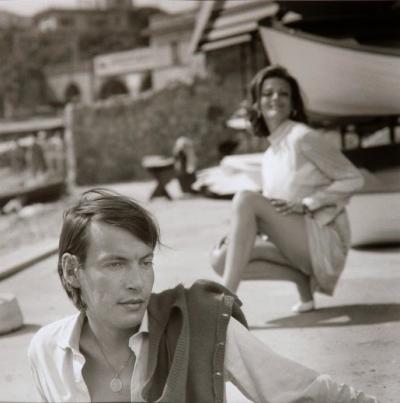
Dal blog Fabrizio De André in English
"De André wrote "Amico fragile" in a drunken rage after attending a party of rich Italians vacationing on Sardinia. They were only interested in having him play guitar and sing his songs, whereas De André wanted to engage people in discussions about events going on in Italy. He became ever more frustrated and inebriated with the shallowness of the evening, returning home to stay up all night and produce this "stream of semi-consciousness" rant. The song was a staple in his live shows and was one of De André's favorites." - Dennis Criteser
"De André wrote "Amico fragile" in a drunken rage after attending a party of rich Italians vacationing on Sardinia. They were only interested in having him play guitar and sing his songs, whereas De André wanted to engage people in discussions about events going on in Italy. He became ever more frustrated and inebriated with the shallowness of the evening, returning home to stay up all night and produce this "stream of semi-consciousness" rant. The song was a staple in his live shows and was one of De André's favorites." - Dennis Criteser
FRAGILE FRIEND
(continuer)
(continuer)
envoyé par Riccardo Venturi 9/2/2016 - 20:47
Andrea
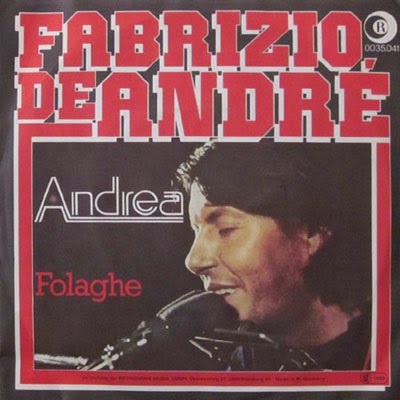
Dal blog Fabrizio De André in English
"Andrea" is both an anti-war song and a statement of solidarity with and acceptance of gays, as the song is about the love between two men (Andrea is a man's name in Italian). The setting for the song is World War I, which can be deduced because intense battles occurred on the ground in the mountains of Trent during WWI, whereas in WWII Trent suffered bombing from the air by the Germans toward the end of the war.
Rimini grew out of De André's disappointments with the political events of the previous couple of years. In close collaboration with Massimo Bubola, a young 24-year-old who had just released his first album, De André explored several social and political themes, including abortion, homosexuality, and how the petty bourgeois attempted to move into the ranks of the powerful and rise above the political and social turmoil of the times. The music... (continuer)
"Andrea" is both an anti-war song and a statement of solidarity with and acceptance of gays, as the song is about the love between two men (Andrea is a man's name in Italian). The setting for the song is World War I, which can be deduced because intense battles occurred on the ground in the mountains of Trent during WWI, whereas in WWII Trent suffered bombing from the air by the Germans toward the end of the war.
Rimini grew out of De André's disappointments with the political events of the previous couple of years. In close collaboration with Massimo Bubola, a young 24-year-old who had just released his first album, De André explored several social and political themes, including abortion, homosexuality, and how the petty bourgeois attempted to move into the ranks of the powerful and rise above the political and social turmoil of the times. The music... (continuer)
ANDREA
(continuer)
(continuer)
envoyé par Riccardo Venturi 9/2/2016 - 20:36
Canzone per l’estate
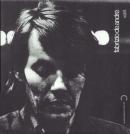
Dal blog Fabrizio De André in English
"The music of "Canzone per l'estate" is entirely De Gregori's, while the lyrics were co-written. De André described the song as somewhat autobiographical, describing the tension between the bourgeois life he grew up in and lived much of his life in, and his attraction to anarchism and to society's outcasts who seemed more genuine and alive than the upper classes. Indeed the song describes well the soul-sapping nature of a comfortable, prosperous life that takes one away from vitality and even political engagement ("your eyes closed to the people")." - Dennis Criteser
SONG FOR THE SUMMER
(continuer)
(continuer)
envoyé par Riccardo Venturi 9/2/2016 - 20:25
La cattiva strada

Dal blog Fabrizio De André in English
"Literally, "cattiva strada" means "bad road." But in a moral sense, if you're straying down the wrong path, going down a slippery slope or leading someone astray, you're on a "cattiva strada" and more than a paving crew will be needed. Author and De André expert Cesare Romana observed the following about "La cattiva strada": "The song is among the most illustrative of the philosophy of a great moralist disguised as an 'immoralist.' The bad road represents a pirate ethic, and also the free port where the powers-that-be don't come. Thus it comes to be defined as bad, yet holding these mainstream powers at a distance endows a force most subversive and revolutionary that can be placed at our disposition: love. The fact is that De André never moved far from the bad road. He continued to think that the humanity, love and dignity of man resided there, and... (continuer)
"Literally, "cattiva strada" means "bad road." But in a moral sense, if you're straying down the wrong path, going down a slippery slope or leading someone astray, you're on a "cattiva strada" and more than a paving crew will be needed. Author and De André expert Cesare Romana observed the following about "La cattiva strada": "The song is among the most illustrative of the philosophy of a great moralist disguised as an 'immoralist.' The bad road represents a pirate ethic, and also the free port where the powers-that-be don't come. Thus it comes to be defined as bad, yet holding these mainstream powers at a distance endows a force most subversive and revolutionary that can be placed at our disposition: love. The fact is that De André never moved far from the bad road. He continued to think that the humanity, love and dignity of man resided there, and... (continuer)
THE ERRANT WAY
(continuer)
(continuer)
envoyé par Riccardo Venturi 9/2/2016 - 18:41
C'era una volta
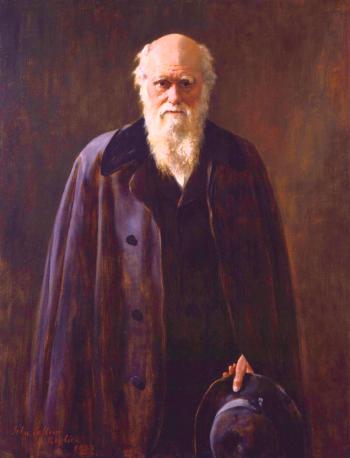
Chanson italienne – C'era una volta – Giorgio Laneve – 1976
Aux débuts des années '70, dans la vague « cantautorale » (chansonnière) italienne qui aura duré, plus ou moins, jusqu'à la fin de la décennie pour ensuite succomber (même musicalement) lors des années de strontium de la décennie suivante, Giorgio Laneve représenta une voix certes menue et polie, mais avec des traits d'originalité (et d'authentique poésie). Ingénieur électronique de formation, Giorgio Laneve commença fort jeune et, pendant une certaine période, il jouit même d'une certaine popularité, sans jouer des coudes (moi-même je me rappelle d'avoir vu une allusion à lui dans le journal de Mickey Mouse, je ne plaisante pas). En 1970, à 24 ans à peine, arriva à l'improviste en second au alors très célèbre « Disque pour l'été » avec Amore dove sei?Amour où es -tu ? , qui reste probablement sa chanson la plus célèbre. Il... (continuer)
Aux débuts des années '70, dans la vague « cantautorale » (chansonnière) italienne qui aura duré, plus ou moins, jusqu'à la fin de la décennie pour ensuite succomber (même musicalement) lors des années de strontium de la décennie suivante, Giorgio Laneve représenta une voix certes menue et polie, mais avec des traits d'originalité (et d'authentique poésie). Ingénieur électronique de formation, Giorgio Laneve commença fort jeune et, pendant une certaine période, il jouit même d'une certaine popularité, sans jouer des coudes (moi-même je me rappelle d'avoir vu une allusion à lui dans le journal de Mickey Mouse, je ne plaisante pas). En 1970, à 24 ans à peine, arriva à l'improviste en second au alors très célèbre « Disque pour l'été » avec Amore dove sei?Amour où es -tu ? , qui reste probablement sa chanson la plus célèbre. Il... (continuer)
IL ÉTAIT UNE FOIS
(continuer)
(continuer)
envoyé par Marco Valdo M.I. 9/2/2016 - 15:23
Canzone per l’estate

In realtà, Fabrizio De André descrisse questa canzone (il cui testo è, sarà bene ricordarlo, stato scritto assieme a Francesco De Gregori) come in un certo qual modo autobiografica. Parla, secondo De André, della tensione tra la vita borghese in cui era cresciuto e aveva vissuto parte della sua vita, e l’attrazione per l’Anarchia e per gli “ultimi” della società, che gli sembravano molto più vivi e genuini delle classi superiori. Fatta salva l’oscurità del testo, caratteristica del resto saliente di quell’album “degregoriano”, si avverte comunque abbastanza bene l’attacco alla vita borghese, confortevole e prospera, che distoglie l’essere umano dalla vitalità e dall’impegno politico (gli “occhi chiusi sulla gente”). Per quel che mi riguarda, l’ho sempre avvertita molto come una canzone sulla dissoluzione della famiglia borghese.
Riccardo Venturi 9/2/2016 - 08:06
Il testamento di Tito

Dal blog Fabrizio De André in English
"Il testamento di Tito" takes us into the Old Testament to the Ten Commandments. Tito, the so-called good thief from the Syriac Infancy Gospel, recounts how he violated each of the commandments (except "Thou shalt not kill"), offering critiques along the way. De André considered this song one of his very best for its hard-hitting social impact." - Dennis Criteser
TITO'S WILL
(continuer)
(continuer)
envoyé par Riccardo Venturi 9/2/2016 - 07:42
Il Pescatore

Dal blog Fabrizio De André in English
"Il pescatore" was released in 1970 as a single. One of De André's most popular songs, it never appeared on a studio album, but can be heard on several live albums." - Dennis Criteser
THE FISHERMAN
(continuer)
(continuer)
envoyé par Riccardo Venturi 9/2/2016 - 07:27
La domenica delle salme
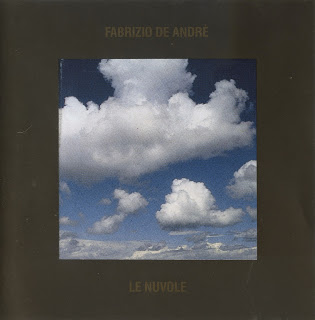
Dal blog Fabrizio De André in English
""La domenica delle salme" is one of De André's most political songs, full of references not easily discernible. The second verse refers to a Milan retirement home resident who was discovered dead under mysterious circumstances. The third verse may refer to a series of murders by a neo-Nazi duo who tagged themselves as Ludwig. The fourth verse refers to the Polish refugees who came to Italy after the fall of the Soviet Union and who worked the streets cleaning car windows (i.e., redoing the makeup of the capitalists heading off to the beach). The fifth verse refers to businessmen looking to profit from the opening of the countries of the former Soviet Union, and the sixth verse refers to the neo-Nazism that subsequently raised its head. The seventh verse may refer to the need for another visible symbol for members of the left and the right to use to... (continuer)
""La domenica delle salme" is one of De André's most political songs, full of references not easily discernible. The second verse refers to a Milan retirement home resident who was discovered dead under mysterious circumstances. The third verse may refer to a series of murders by a neo-Nazi duo who tagged themselves as Ludwig. The fourth verse refers to the Polish refugees who came to Italy after the fall of the Soviet Union and who worked the streets cleaning car windows (i.e., redoing the makeup of the capitalists heading off to the beach). The fifth verse refers to businessmen looking to profit from the opening of the countries of the former Soviet Union, and the sixth verse refers to the neo-Nazism that subsequently raised its head. The seventh verse may refer to the need for another visible symbol for members of the left and the right to use to... (continuer)
PSALM SUNDAY
(continuer)
(continuer)
envoyé par Riccardo Venturi 9/2/2016 - 07:07
Carlo Martello torna [o: ritorna] dalla battaglia di Poitiers; o Carlo Martello
![Carlo Martello torna <i>[o: ritorna]</i> dalla battaglia di Poitiers; <i>o</i> Carlo Martello](img/thumb/c1095_130x140.jpeg?1328357200)
Dal blog Fabrizio De André in English
"This song was released in 1963 as the B side of a 45 with "Il fannullone" as the A-side. The text was written by a friend from childhood, Paolo Villagio, and the music is by De Andrè. The Battle of Poitiers occurred in 732, a battle between the Franks and the Moors in what is now northern France. The song is in the style of popular French pastourelles sung by medieval troubadours about encounters between knights and country girls. In 1965 a complaint was brought against De Andrè and his label Karim for obscene content in the lyrics. The case was settled in De Andrè's favor in 1968. The Italian in this song is an old style, and Riccardo Venturi has done a nice translation into a similarly "olde" style of English." - Dennis Criteser
CHARLES MARTEL RETURNS FROM THE BATTLE OF POITIERS
(continuer)
(continuer)
envoyé par Riccardo Venturi 9/2/2016 - 06:56
Il fannullone
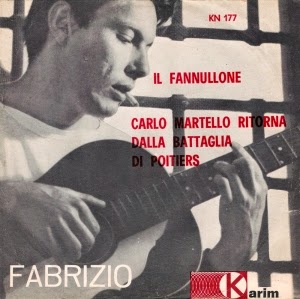
Dal blog Fabrizio De André in English
"Il fannul[l]one" was the A-side of De Andrè's third single on Karim, released in 1963. It was co-written with Paolo Villaggio, a childhood friend. There are several strains in this early song that will surface regularly in later songs: going against the grain of mainstream society, a sense of irony towards so-called respectable folk ("la gente per bene"), and an irreverent and playful attitude. The song no doubt sprang from the anti-conformist lifestyles of the two young authors. Riccardo Venturi called this song "deliciously revolutionary and subversive" and described it as a "hymn to doing nothing," where to do nothing is to live life truly, not allowing a dehumanized corporate complex to take it away from you." - Dennis Criteser
"Il fannul[l]one" was the A-side of De Andrè's third single on Karim, released in 1963. It was co-written with Paolo Villaggio, a childhood friend. There are several strains in this early song that will surface regularly in later songs: going against the grain of mainstream society, a sense of irony towards so-called respectable folk ("la gente per bene"), and an irreverent and playful attitude. The song no doubt sprang from the anti-conformist lifestyles of the two young authors. Riccardo Venturi called this song "deliciously revolutionary and subversive" and described it as a "hymn to doing nothing," where to do nothing is to live life truly, not allowing a dehumanized corporate complex to take it away from you." - Dennis Criteser
THE SLOUCH
(continuer)
(continuer)
envoyé par Riccardo Venturi 9/2/2016 - 06:20
Le formiche

Chanson italienne – Le formiche – Giorgio Laneve – 1976
Aux débuts des années '70, dans la vague « cantautorale » (chansonnière) italienne qui aura duré, plus ou moins, jusqu'à la fin de la décennie pour ensuite succomber (même musicalement) lors des années de strontium de la décennie suivante, Giorgio Laneve représenta une voix certes menue et polie, mais avec des traits d'originalité (et d'authentique poésie). Ingénieur électronique de formation, Giorgio Laneve commença fort jeune et, pendant une certaine période, il jouit même d'une certaine popularité, sans jouer des coudes (moi-même je me rappelle d'avoir vu une allusion à lui dans le journal de Mickey Mouse, je ne plaisante pas). En 1970, à 24 ans à peine, arriva à l'improviste en second au alors très célèbre « Disque pour l'été » avec Amore dove sei?Amour où es -tu ? , qui reste probablement sa chanson la plus célèbre. Il fut même... (continuer)
Aux débuts des années '70, dans la vague « cantautorale » (chansonnière) italienne qui aura duré, plus ou moins, jusqu'à la fin de la décennie pour ensuite succomber (même musicalement) lors des années de strontium de la décennie suivante, Giorgio Laneve représenta une voix certes menue et polie, mais avec des traits d'originalité (et d'authentique poésie). Ingénieur électronique de formation, Giorgio Laneve commença fort jeune et, pendant une certaine période, il jouit même d'une certaine popularité, sans jouer des coudes (moi-même je me rappelle d'avoir vu une allusion à lui dans le journal de Mickey Mouse, je ne plaisante pas). En 1970, à 24 ans à peine, arriva à l'improviste en second au alors très célèbre « Disque pour l'été » avec Amore dove sei?Amour où es -tu ? , qui reste probablement sa chanson la plus célèbre. Il fut même... (continuer)
LES FOURMIS
(continuer)
(continuer)
envoyé par Marco Valdo M.I. 8/2/2016 - 23:29
Timber (Jerry the Mule)

Splendida versione!!! What a Voice!!!
Si tratta di Jewel Brown, classe 1937, la quale - chissà perchè - ebbe una breve carriera e quasi solo come "sidegirl" di Louis Armstrong. Si ritirò dalle scene già nel 1971. Peccato...
E' tornata nel 2012 con un disco per la Dialtone Records, insieme al chitarrista Milton Hopkins, ma senza suscitare grande clamore...
Si tratta di Jewel Brown, classe 1937, la quale - chissà perchè - ebbe una breve carriera e quasi solo come "sidegirl" di Louis Armstrong. Si ritirò dalle scene già nel 1971. Peccato...
E' tornata nel 2012 con un disco per la Dialtone Records, insieme al chitarrista Milton Hopkins, ma senza suscitare grande clamore...
Bernart Bartleby 8/2/2016 - 20:18
La Avenida de los Tilos

Non mi ero accorto che c'era già una canzone, contribuita pure di recente, sulla vicenda dei giovani rugbysti argentini, Ellos nos han separado...
Grazie DQ82!
Grazie DQ82!
Bernart Bartleby 8/2/2016 - 13:03
Sólo le pido a Dios

Esiste su YouTube anche una struggente interpretazione di questa canzone (in lingua originale) da parte del cantautore bolognese Germano Bonaveri.
Andrea Pesce 7/2/2016 - 23:54
Petit Pasqua Noël

PICCOLO PASQUA NATALE
(continuer)
(continuer)
envoyé par Daniel(e) Bellucci . 07.02.2016. Nizza 7/2/2016 - 23:34
×
![]()


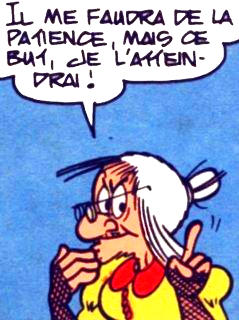

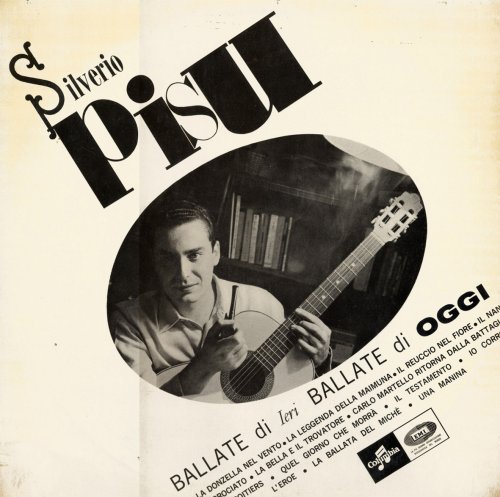
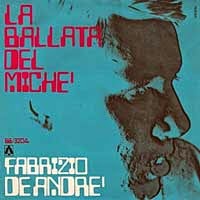

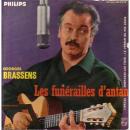


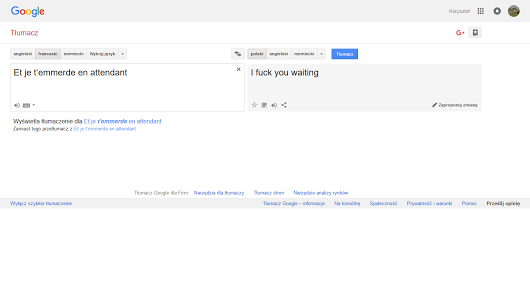

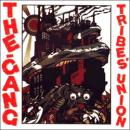
Parole di Katherine Faith Macky (1921-2006), conosciuta come Willow Macky, cantautrice neozelandese
Sulla melodia dell’ottocentesca The Wild Colonial Boy
Canzone inclusa nella prima edizione del “The Vietnam Songbook”, realizzata nel 1969 da Barbara Dane ed Irwin Silber (1925-2010), editore, scrittore, militante socialista e cofondatore “Sing Out!”
Testo trovato sul sito Raymond’s Folk Song Page curato da Raymond Crooke, che di ogni canzone offre anche una sua cover. Pure l’introduzione che segue è sua:
A few days ago I put up a song called "The Ballad of Bill White", by Glen Tomasetti, about an Australian teacher who was jailed as a conscientious objector to the Vietnam war. This is another song about the same story, written by a New Zealander, to the tune of "The Wild Colonial Boy", and published in Barbara Dane's and Irwin Silber's "The Vietnam Songbook" (1969). Macky is quoted... (continuer)